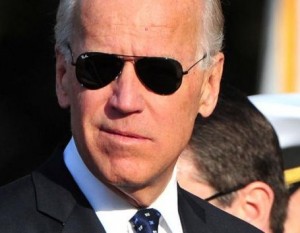by | ARTICLES, BLOG, BUSINESS, ECONOMY, GOVERNMENT, OBAMA, OBAMACARE, POLITICS, TAXES
I have no particular favorite right now in the GOP nomination fight. As a CPA, I pay close attention to the economic policies of the various candidates.
Carly Fiorina spoke to New Hampshire Republican Party’s First in the Nation leadership summit in Nashua, N.H on the subject of small business. Being the former CEO of Former Hewlett-Packard, Fiorina offered a decent perspective, which hasn’t really been discussed at length so far by many of the other candidates.
“The heroes of the American economy are small businesses and family-owned businesses”
“For the first time in U.S. history, we are destroying more businesses than we are creating”
“All of the things they are doing up there are landing on us down here. The weight of the government is literally crushing the potential of the people of this nation”
I don’t particularly think that Fiorina has the ability to be much of a viable candidate, especially considering her failed Senate campaign against Barbara Boxer in California. I do appreciate her calling out the government’s anti-business policies, something about which I have written extensively.
Whoever becomes the Republican nominee needs to be able to speak clearly and definitively about economic issues and call out the failed government policies of higher taxes, increased regulation, and minimum wage nonsense. Small businesses have borne the brunt of Obama’s heavy-handedness, and our economy has failed to recover adequately because of it.
by | ARTICLES, BLOG, BUSINESS, OBAMA, POLITICS, TAXES
As I read this recent article in the Wall Street Journal, “Sluggish Productivity Hampers Wage Gains” I mulled as to whether or not the Wall Street Journal had started a new satire section — but then it occurred to me that the author’s analysis of the current market was completely serious. Is he so clueless that he actually does not understand why there is “tepid productivity”?
The author, Greg Ip, cites 1) Faulty data may be partly to blame, 2) the severity of the financial crisis and recession and 3) weak business investment, but completely misses the elephant in the room: the meddling, anti-business policies of the current administration.
This administration has been exceedingly heavy-handed in its efforts to demonize businesses, while promising that businesses will be highly taxed and regulated. Whether it is labor regulation by the NRLB or environmental regulation by the EPA, government interference has been overreaching and restrictive.
Additionally, there have been huge increases in both criminal rules and regulations about what businesses are allowed and not allowed to do — from nitpicky labor rules, to dictating employee minutiae, to minimum wage requirements, all which restrict business hiring.
More unfortunately, Obama has provided the background for a litigation-friendly environment. If a larger, more financially stable company wants to steal something from a smaller company, they can sue them or just threaten with a costly legal battle. Likewise, “disparate impact” and IRS asset forfeiture are two practices which demonize business owners by merely suggesting wrongdoing — and put the burden of the business owners to prove their innocence.
And recently, the Obama Administration has decided to wage war on business inversions, by declaring companies who wish to move their headquarters abroad in order to stay competitive, to be “unpatriotic”, and “tax dodgers”, calling the perfectly legal process of inversion to be a “loophole”. Couple that with the fact that we have the highest corporate tax rate in the world and it’s no wonder that businesses struggle to survive.
Usually the Wall Street Journal is fairly en pointe. It’s hard to believe any editor would have let this article be published while utterly ignoring Obama’s detrimental business policies that have plagued the economy over the last 6 years — which is why something needed to be said.
by | ARTICLES, BLOG, BUSINESS, ECONOMY, GOVERNMENT, OBAMA, POLITICS, TAXES
The question of raising the minimum wage keeps getting pushed at the federal level, as well as across many states. If we are to educate the populace on the pitfalls of arbitrary “minimum wage” hikes, we must be sure to argue the inherent flaws of suggestion that minimum wage hikes help some people and therefore are good for everyone.
This was illustrated recently on an episode of CNBC’s “On the Money” with Becky Quick. On one side was Dan Mitchell of CATO, who has done admirable work on fiscal policy and economics over there for many years. Opposite him was Jared Bernstein, a former Chief Economist and Economic Adviser to Vice President Joseph Biden. Mitchell’s appearance on the show, however, was a bit of a disappointment on the issue of minimum wage.
There were two major points he seemed to miss. The first was in regard to the effect of a minimum wage hike on workers. Mitchell pointed out, correctly, that 500,000 people would lose their jobs, to which his opponent, Jared Bernstein, countered that 24 million people would gain more money (“get out of poverty” per the CBO), and therefore, quantitatively, people would benefit in a 50-1 ratio. But that is wrong!
Those 24 million, though they may benefit from a raise, will really one see a few cents more an hour. Those that lose their jobs, will lose not only $7.50 an hour in comparison, but also the opportunity to learn working skills and actually have a job from which they can advance in the workforce. Even if Bernstein’s figures were perfectly accurate – which they were not – having 24 million people earn a few more cents per hour versus the entire loss of jobs and livelihood do not make raising the minimum wage worthwhile.
But that point is secondary. The primary issue – and the one that Mitchell (as well as all of us who understand the economics of minimum wage) seem to be unable counter to the Jared Bernsteins of the world – relates to the economic cost of a minimum wage. He needed to explain to Mr. Bernstein that the apparent extra money going to those getting the higher minimum wage is, in fact, detrimental to the economy as a whole, and therefore ultimately to even those people it was intended to help.
Economics 1a would explain (looking for “what is unseen” ) that the extra money going to those benefiting must be coming from somewhere (though providing no extra result). It is coming from either a) lower wages paid to other employees, b) lower profits to the business, which lowers rate of return directly reducing new investments in that business and reducing the likelihood that new businesses will be started, or c) higher prices to the consumer, which (Economics 1a again) shows will reduce total sales volume, and therefore GDP as a whole..
Though Mitchell did successfully argue the merits of how minimum wages certainly shouldn’t be a federal law, but rather a state consideration, he missed entirely the ability to counter the false argument concerning the minimum wage altogether. If we don’t oppose and expose the core flaws, we will certainly continue to lose in the public square on the issue of minimum wage.
by | ARTICLES, BLOG, BUSINESS, ECONOMY, GOVERNMENT, OBAMA, POLITICS, TAXES

While stumping for Democrat candidates in Oregon, the Vice President shared his thoughts on the current economy with voters. And he got it very wrong.
“Economic growth has replaced the income that was lost during the recession, but the gains went primarily to taxpayers on the top. I think we should make them start to pay their fair share. Take the burden off the middle class”
Economic growth has not happened. Since Obama began his presidency:
The national debt has skyrocketed from $10.6 trillion to $17.8 trillion
Homeownership has decreased from 67.5% to less than 65%
Labor participation has fallen from about 66% to 63%.
Food stamp use has increased from 32 million to 46 million participants
Lost income has not been replaced: Since Obama began his presidency:
Median incomes have decreased from about $54,000 to $51,500.
The number of Americans who consider themselves middle class has dropped nearly 20%
Gains did not primarily go to taxpayers on top:
“The top 20 percent of earners accounted for 51 percent of all income in 2013, unchanged from 2012 and up slightly from 49.4 percent in 1999″.
Of course, Biden used his (wrong) economic talking points to pull out the old class-warfare playbook and insist that the rich “pay their fair share”.
Finally, if Biden is concerned about taking the burden off the middle class, he needs to start with the government. As I said earlier this week, the middle class has been the most devastated by Obama’s policies. Job growth and small business sustainability have been decimated by government regulation, taxation, fines, and lawsuits meddling in normal business practices. The middle class can’t get good jobs anymore, businesses have failed, growth is tepid, and everyday Americans are rightfully discouraged.
by | ARTICLES, BUSINESS, ECONOMY, GOVERNMENT, OBAMA, POLITICS, TAXES

Suddenly, Obama is everywhere talking about economic policies again. He is the mastermind behind the growth in corporate profits. He is the reason for the current stock market highs. He has single-handedly reduced unemployment to its lowest rate since 2008. He is Obama!
And yet, the middle class is repeatedly telling Obama that they feel left behind.
Why such disparity? The Administration can try to attribute these recent “successes” to Obama, but it only shows that they have a laughable cluelessness about what is really happening as a result of his economic policies.
Major corporations are doing well because they have enough size and stability to weather the storm created by Obama’s terrible business policies. This has included minimizing employment and trying to be as lean and efficient as possible. Mom-and-pops, on the other hand, have not the luxury to be as resilient.
The stock market is high only because major corporations have continued to persevere by changing the way they do business. Because of the government policies — including over-regulation and excessive taxation — companies have been forced to operate on the skinny just to survive. By doing so, profits are able to be maintained and the stock market reactive to that.
As a result of efficiency, therefore, unemployment is at its lowest percentage because there are no jobs to be attained anymore and people are just simply leaving the workforce altogether. Obama refuses to acknowledge the fact that labor participation is at its lowest rate since 1962. That is the major contributing factor to his “low” unemployment number — not because of job creation as he claims. Americans have stopped looking for work.
Thus, the middle class has the correct assessment because they have been the most devastated by Obama’s policies. Job growth and small business sustainability have been decimated by government regulation, taxation, fines, and lawsuits meddling in normal business practices. The middle class can’t get good jobs anymore, businesses have failed, growth is tepid, and everyday Americans are rightfully discouraged.
Related: “AP’s ‘Fact Check’ of Obama’s ‘Stronger Economy’ Claims Limited to ‘A Few’ Items: Two”
Lou Dobbs Refutes Obama’s Claim that the Economy Has Improved by Every Economic Measure
Are You Better Off Today? Here are the True Facts & Figures From the Obama Economy

